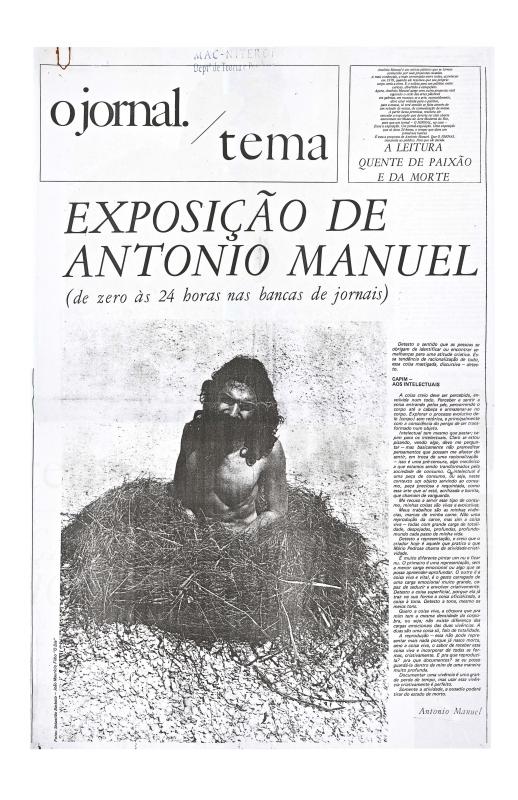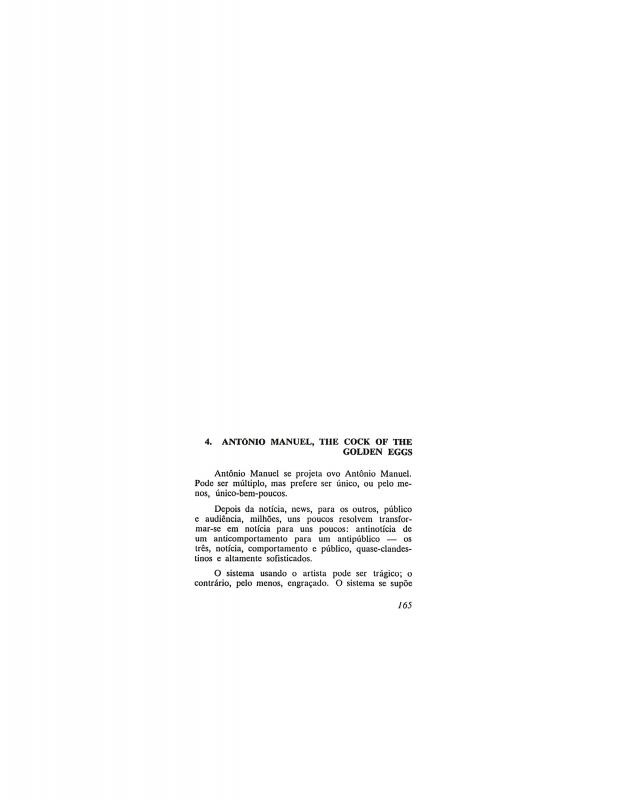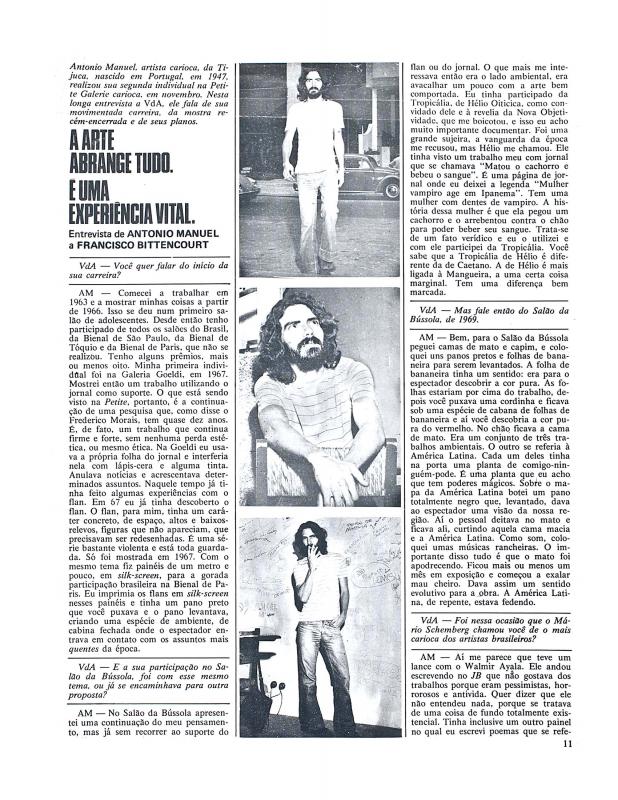This text was published in the book Antonio Manuel (Rio de Janeiro: Funarte, 1981), as part of the ABC (Arte Brasileira Contemporânea) series. The artist discusses the repressive control of the art world during the crackdown by the military dictatorship, and obviously, censorship in Brazil. As a result of these circumstances, many artists chose to create works outside the official art circuit, “independently of museums, independently of the dictatorship,” as he says in his book. The supplement “De 0 a 24 horas” appeared on July 15, 1973, in the newspaper O Jornal, with photographs of the works that had been censored by the administration of the MAM-RJ (Museu de Arte Moderna do Rio de Janeiro). It also included the text written by the concrete poet Décio Pignatari for the exhibition that never took place.
Antonio Manuel (b. 1947) was born in Portugal but had lived in Brazil since he was a child. He made a name for himself in the Brazilian art world in the late 1960s with works that were strongly participatory, political, and to some extent (according to the repressive military authorities), “subversive;” especially his “flanes” (works that consisted of the plastic plates used to print newspapers, to which he added images and text), and other efforts, such as Eis o saldo. In 1970, he submitted his naked body as a work of art at Salão Nacional do MAM-RJ. His proposal was rejected, so at the opening of the event at the MAM-RJ he took his clothes off in public. During that same decade he also produced a series of films.
[As complementary reading, see the ICAA digital archive for another article by the artist: “Exposição de Antonio Manuel (de zero às 24 horas nas bancas de jornais)” (doc. no. 1111096). See also the essays by Décio Pignatari “Antonio Manuel, the cock of the golden eggs” (doc. no. 1111097); by Hélio Oiticica “Urnas quentes de Antonio Manuel” (doc. no. 1280644); and by Francisco Bittencourt “A arte abrange tudo. É uma experiência vital” (doc. no. 1111094)].



